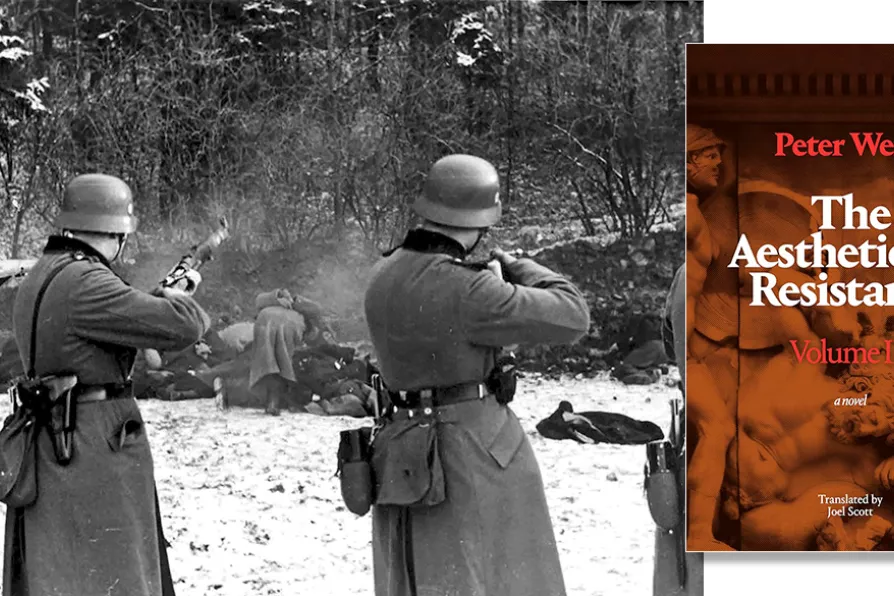DENNIS BROE searches the literary canon to explore why a duplicitous, lying, cheating, conning US businessman is accepted as Scammer-in-Chief

 MURDER AFORETHOUGHT: The execution of 56 Poles in Bochnia, near Krakow on December 18 1939
[Found on a German officer/CC]
MURDER AFORETHOUGHT: The execution of 56 Poles in Bochnia, near Krakow on December 18 1939
[Found on a German officer/CC]
The Aesthetics of Resistance, Volume III: A Novel
Peter Weiss, Duke University Press, £26.47
THE third volume of Peter Weiss’s masterwork The Aesthetics of Resistance opens with the narrator describing the murder of dozens of innocents by Nazi troops. In actuality, he is watching his mother lost in a hallucinatory vision brought on by the madness she and her husband have witnessed in their forced exile from their home in Bohemia.
It is not until near the novel’s end that we discover that not only did she witness such executions — soldiers lining up civilians in front of a ditch then shooting them from behind so they fall face first into their mass grave — but that she fell into such a pit alive, wrestling with the dying humans to get out after the shooting ended. It was this moment that her mind broke and began to withdraw from the deranged reality of the Nazi frenzy of murder and annihilation.

Peter Mitchell's photography reveals a poetic relationship with Leeds












